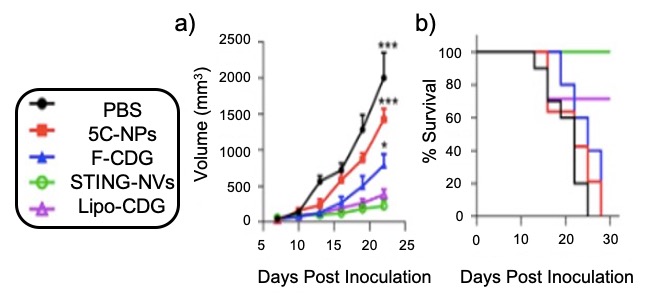Drug Delivery
Novel Peptide for Intracellular Drug Delivery
Cell Penetrating Peptide with Enhanced Cell Permeability
Peptide libraries are indispensable for drug discovery and evaluation of the different physiological effects of peptides. Unfortunately, many of these peptides are not cell permeable, making application of these peptides not feasible. To overcome this challenge, linear cell penetrating peptides (CPP) are attached to the desired peptide to increase the overall permeability however linear peptides suffer from endosomal entrapment. Again, making application of these peptides not feasible. Researchers at Virginia Commonwealth University have developed a novel cyclic cell penetrating peptide to overcome these shortcomings.
The technology
This technology to utilizes a novel cyclic CPP that can readily be attached to other peptide compounds to increase peptide permeability over 20 fold over linear CPP. This allows the cyclic CPP to carry cargo that is typically not cell permeable such as certain pharmaceuticals, enzymes, or antibodies and deliver them intracellularly. The cargo carrying capacity and associated permeability of the novel cyclic CCP can also be tailored, with different peptide configurations allowing a range of both permeability and carrying capacity. In addition, other cyclic CPP are cyclized in a head-to-tail fashion, shown in the figure below, preventing them from being synthesized by mRNA or phage display methodologies. The novel cyclization method developed at VCU allows both mRNA and phage display methodologies to synthesize the novel cyclic CPP.

Figure 1. Cyclic cell penetrating peptides that are cyclized in (a) a head-to-tail fashion that prevents synthesis via mRNA and phage display methodologies and (b) the novel cyclic cell penetrating peptides developed by researchers at VCU that allow for synthesis using both mRNA and phage display methodologies.
